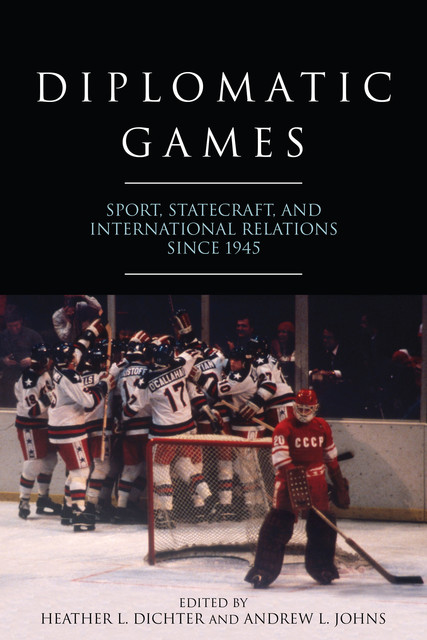How events like the Olympics and World Cup have affected international relations: “A significant contribution to historical knowledge and understanding.”? Peter J. Beck, author of Scoring for Britain
International sporting events, including the Olympic Games and the FIFA World Cup, have experienced profound growth in popularity and significance since the mid-twentieth century. Sports often facilitate diplomacy, revealing common interests across borders and uniting groups of people who are otherwise divided by history, ethnicity, or politics. In many countries, popular athletes have become diplomatic envoys. Sport is an arena in which international conflict and compromise find expression, yet the impact of sports on foreign relations has not been widely studied by scholars.
In Diplomatic Games, a team of international scholars examines how the nexus of sports and foreign relations has driven political and cultural change since 1945, demonstrating how governments have used athletic competition to maintain and strengthen alliances, promote policies, and increase national prestige. The contributors investigate topics such as China’s use of sports to oppose Western imperialism, the ways in which sports helped bring an end to apartheid in South Africa, and the impact of the United States’ 1980 Olympic boycott on US-Soviet relations. Bringing together innovative scholarship from around the globe, this groundbreaking collection makes a compelling case for the use of sport as a lens through which to view international relations.

